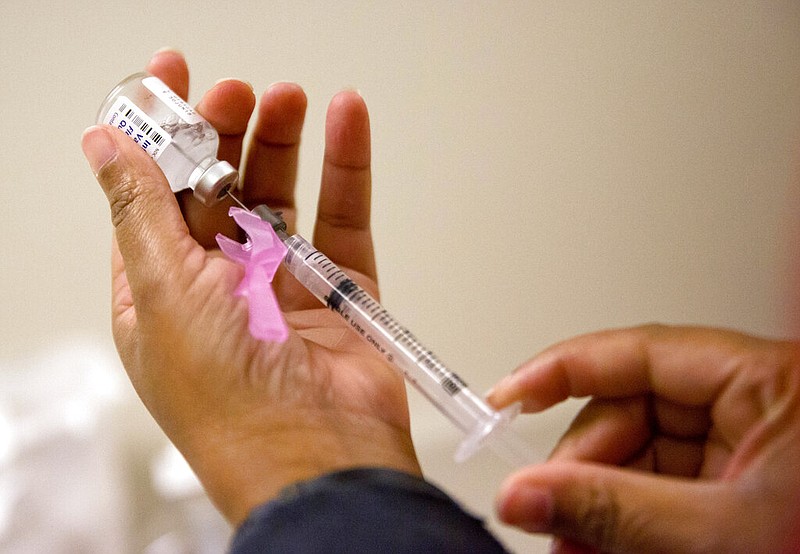Seasonal flu has taken hold in much of the southern United States.
And although the Centers for Disease Control and Prevention classify the spread of the illness as being only "local activity," three people have now died from the flu in Missouri.
Data from the Missouri Department of Health and Senior Services' most recent surveillance report show officials verified through laboratory testing that 264 new cases of influenza had been identified.
Of those, 104 were the influenza A strain and 159 were influenza B, with one that did not receive a type. The data are for the week ending Nov. 30.
No influenza or influenza-like illness-associated outbreaks or school closings have been reported.
None of the deaths were in Cole County, according to Cole County Communicable Disease Coordinator Chezney Schulte.
Officials verified 16 new cases (nine influenza A and seven influenza B) in Cole County during the week ending Nov. 30. It had two the previous week and four the week before that.
Flu season officially began with the week ending Oct. 6. In that time, Cole County has found 24 cases of influenza A and 14 of influenza B, Schulte said.
The two strains have similar symptoms. However, strains of influenza B are exclusively contracted by humans. Animals may carry and spread influenza A.
Both are mainly transmitted through direct contact with an infected person or respiratory droplets expelled during coughing.
Symptoms may include fever, cough, sore throat, runny or stuffy nose, body aches, headache, chills, and fatigue.
The total number of influenza cases in Missouri recently surpassed 1,500.
"Last year, we had a pretty slow start and started to peak around week 11 (late March)," Schulte said. "That was late."
With holiday gatherings around the corner, DHSS recommends putting the flu shot on your to-do list.
People can prevent spread of flu by getting a flu vaccination, avoiding close contact with sick people; and washing hands often with soap and water or, if soap and water are unavailable, an alcohol-based hand rub.
Cover your nose and mouth when you cough or sneeze.
Avoid touching your eyes, nose and mouth.
Clean and disinfect commonly touched surfaces.
People infected with the flu may be able to spread the disease to others in a day, and they may not begin to show symptoms for five to seven days.
Young children, those who are severely ill, and those who have severely weakened immune systems may be able to infect others for longer than a week.

